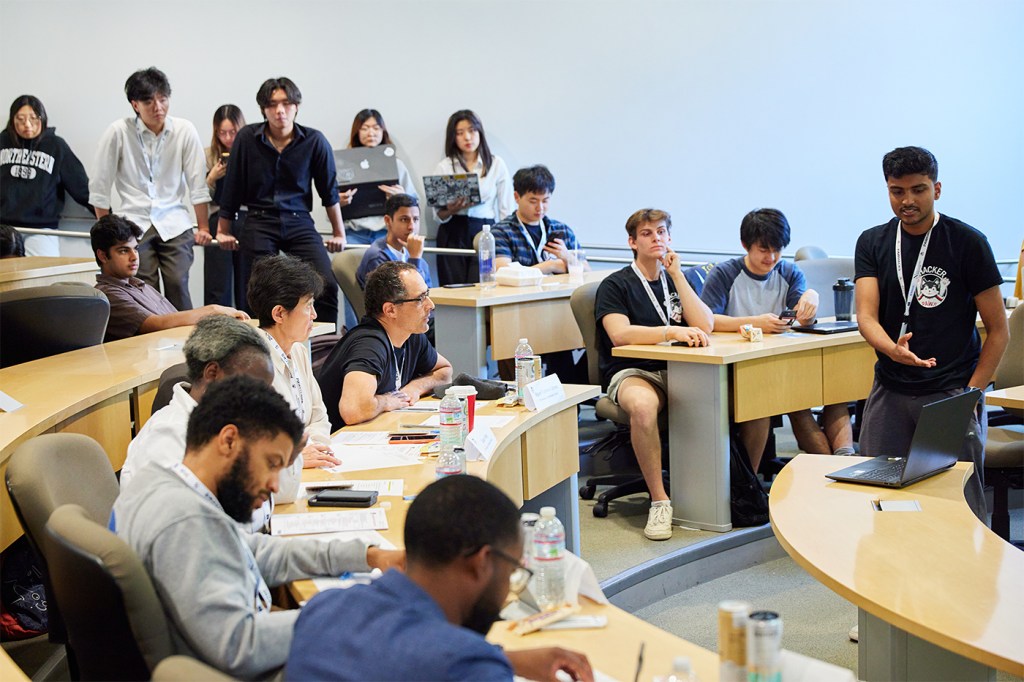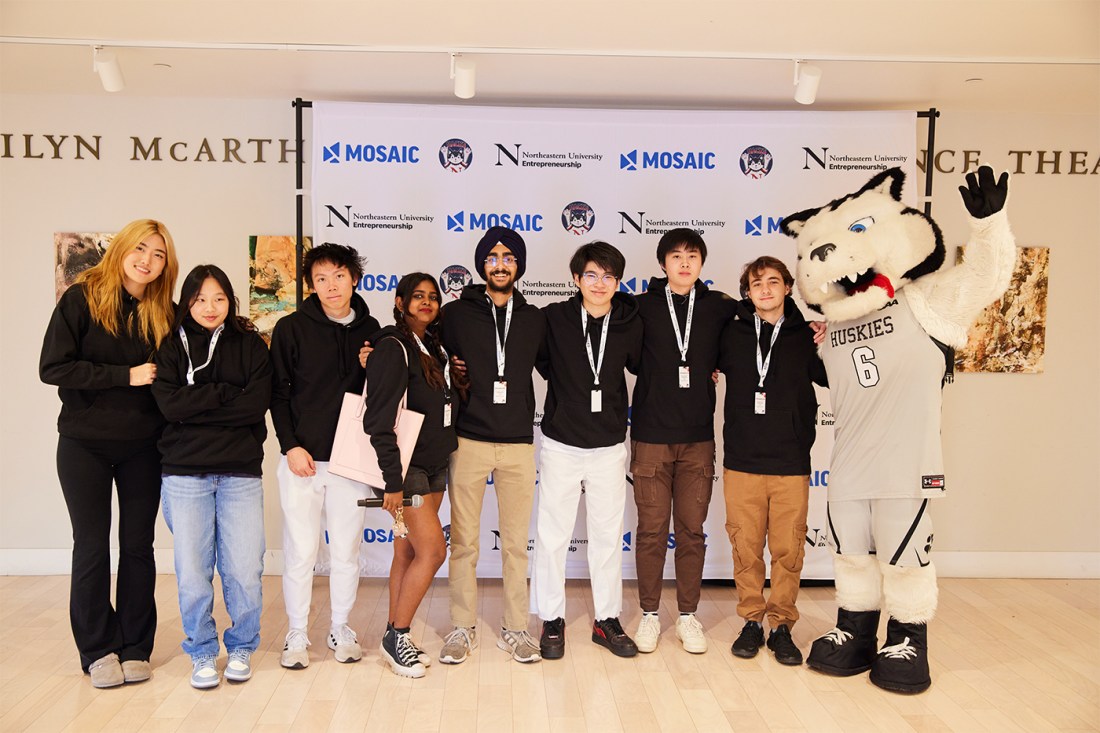Students on Northeastern’s Oakland campus impress judges after developing, pitching products during weekend competition

About 20 years ago, Brian Dixon made his first pitch as a student at Northeastern University.
Now a managing partner at the venture capital firm Kapor Capital, Dixon returned to Northeastern’s Oakland campus on Sunday — this time as a judge to hear pitches from students participating in a hackathon.
The students made an impression.
“I was extremely impressed — especially being a venture capitalist and investing in tech companies — with what some of these teams were able to develop over a weekend,” Dixon said. “I’m excited for the future, to say the least.”

The event, called PawHacks — Northeastern’s mascot made Oakland the second stop on his Paws World Tour — included 25 teams and roughly 100 participants focusing on developing solutions for problems related to the theme of education.
The hackathon was a collaboration among three on-campus clubs: Girls Who Code, the Computer Science Coalition and the Entrepreneurs Club.
The event was inspired by a university-run hackathon in November. This time, however, the students organized everything themselves with support from the Experiential Entrepreneurship Team and the Oakland campus.
“We were hoping to just spread more opportunities for, and start a platform for, more opportunities and hackathons to come in the future for this specific campus,” said student organizer Samyutha Srinivasan. “We wanted to create some kind of legacy for this campus, so students next year could host a hackathon here, and we wanted to make sure there was a community here that people could be part of.”
Participating teams could choose from among three tracks: web development, artificial intelligence and game development. The majority of the student participants were first-year computer science students at Northeastern, with a few representatives of other area schools as well.
Editor’s Picks
The event kicked off Friday night, and teams had until Sunday afternoon to develop a product to pitch to a panel of five judges — two faculty members and three community members.
“We would have slept (in the lab) if the security guard hadn’t kicked us out,” says student Arav Kumar.
Kumar was a member of team Curve, which developed an app that uses AI to create a 20-hour adaptable training program for learning any new task. The app is based on the idea that within the first 20 hours of learning you can learn 80% of the information you need for a new task. It was the first app that members of the team had ever built. Their team won first prize.
Alex Mohammed, Joseph Siracusa, Lily Lane and Anna Hall won the game development track with Math Monsters, a web-based game that uses racing monsters to help kids develop math skills.
“It was really fun to come up with the problem and see how our problem had a real solution, and how it had a real-world application,” Mohammed said.
Carolyn Johnson, a judge of the event, said that these real-world applications were particularly impressive to her as the founder of the Black Cultural Zone, an Oakland community development organization and Northeastern community partner.
“What I got from the students reinforced my absolute infatuation with AI and how much it can really solve, and trying to think about how my community can get connected to AI and how to bring that problem solving to our neighborhoods for real issues,” Johnson said.
“I think they are plugged into what’s really going on and creatively trying to find solutions,” Johnson continued. “So, I feel we’re in good hands.”











